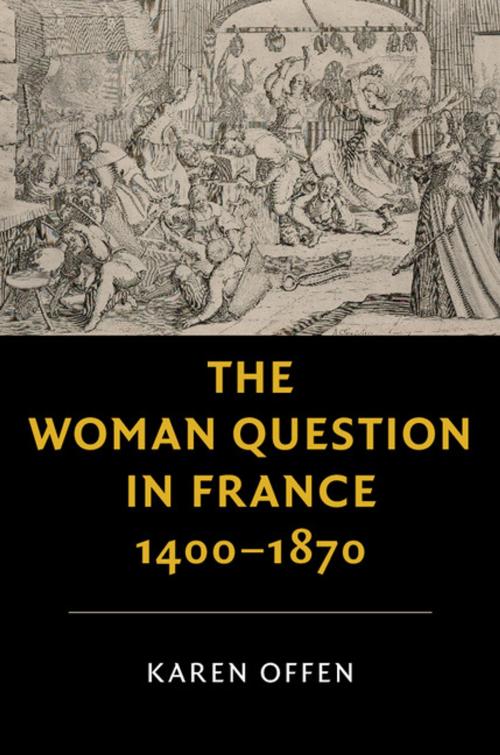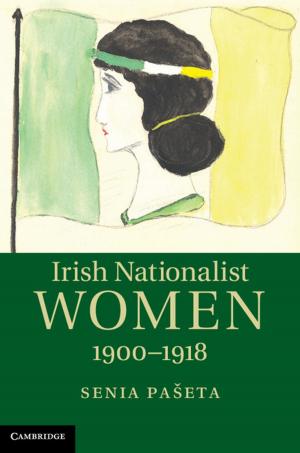The Woman Question in France, 1400–1870
Nonfiction, History, European General, Social & Cultural Studies, Social Science| Author: | Karen Offen | ISBN: | 9781316990650 |
| Publisher: | Cambridge University Press | Publication: | October 5, 2017 |
| Imprint: | Cambridge University Press | Language: | English |
| Author: | Karen Offen |
| ISBN: | 9781316990650 |
| Publisher: | Cambridge University Press |
| Publication: | October 5, 2017 |
| Imprint: | Cambridge University Press |
| Language: | English |
This is a revolutionary reinterpretation of the French past from the early fifteenth century to the establishment of the Third Republic, focused on public challenges and defenses of masculine hierarchy in relations between women and men. Karen Offen surveys heated exchanges around women's 'influence'; their exclusion from 'authority'; the increasing prominence of biomedical thinking and population issues; concerns about education, intellect, and the sexual politics of knowledge; and the politics of women's work. Initially, the majority of commentators were literate and influential men. However, as more and more women attained literacy, they too began to analyze their situation in print and to contest men's claims about who women were and should be, and what they should be restrained from doing, and why. As urban print culture exploded and revolutionary ideas of 'equality' fuelled women's claims for emancipation, this question resonated throughout francophone Europe and, ultimately, across the seas.
This is a revolutionary reinterpretation of the French past from the early fifteenth century to the establishment of the Third Republic, focused on public challenges and defenses of masculine hierarchy in relations between women and men. Karen Offen surveys heated exchanges around women's 'influence'; their exclusion from 'authority'; the increasing prominence of biomedical thinking and population issues; concerns about education, intellect, and the sexual politics of knowledge; and the politics of women's work. Initially, the majority of commentators were literate and influential men. However, as more and more women attained literacy, they too began to analyze their situation in print and to contest men's claims about who women were and should be, and what they should be restrained from doing, and why. As urban print culture exploded and revolutionary ideas of 'equality' fuelled women's claims for emancipation, this question resonated throughout francophone Europe and, ultimately, across the seas.















